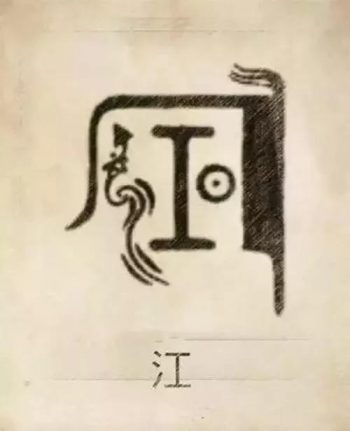The Jiang(jiāng) surname is one of the oldest surnames in China, carrying a diverse historical context and cultural heritage. From the ancient feudal states to changes of modern society, the Jiang family has produced many outstanding figures in politics, literature, science and technology, and its migration history reflects the integration and evolution of Chinese. This article will deeply analyze the origin, historical celebrities, cultural significance and social influence of the Jiang surname, and present the unique charm of this surname to the readers.

Ⅰ、Origins of the Jiang Surname:
1. Take the country as the surname
The Jiang surname traces its roots back to the ancient Jiang State. During the Western Zhou Dynasty (1046–771 BCE), the descendants of Boyi, a legendary figure who assisted Yu the Great in controlling floods, were granted the territory of Jiang (in present-day Zhengyang, Henan Province). The Jiang State existed as a vassal state until it was conquered by the Chu State in 623 BCE. After the fall of the Jiang State, its people adopted "Jiang" as their surname, forming the primary branch of the Jiang family.
2. Branch of the Ji Clan
During the Western Zhou Dynasty, descendants of the Ji clan were granted the territory of Wengshan (in present-day Dinghai, Zhejiang Province) and adopted the surname Weng. In the Song Dynasty, Weng Qiandu, a descendant of the Weng clan, changed his son's surname to Jiang to honor his family's legacy, creating another significant branch of the Jiang family.
3. Name Change for Survival
During the late Tang Dynasty, Xiao Zhu, the son of the prime minister Xiao Gou, fled to Huangdun in Anhui Province to escape political turmoil. To commemorate his journey across the Yangtze River, he changed his surname to Jiang, establishing another branch of the Jiang family.
4. Ethnic Integration
During the Ming and Qing Dynasties, members of the Mongolian Jiangji clan and the Tibetan Jianzan clan adopted the Jiang surname. Additionally, some indigenous people in Taiwan chose the Jiang surname after the Japanese occupation ended, further enriching the Jiang family's diverse heritage.
Ⅱ、Historical Figures:
1. Political and Military Figures
Jiang Yi: A strategist during the Warring States Period, Jiang Yi was known for his wisdom and played a key role in strengthening the Chu State.
Jiang Wanli: A prime minister during the Southern Song Dynasty, Jiang Wanli is remembered for his loyalty and bravery. He chose to drown himself rather than surrender when the Yuan army captured his city.
2. Literary and Artistic Figures
Jiang Yan: A renowned writer of the Southern Dynasties, Jiang Yan is famous for the idiom "Jiang Lang Cai Jin" (Jiang's talent exhausted), which describes a decline in creativity. His works, such as Fu on Regret and Fu on Farewell, are celebrated for their emotional depth.
Jiang Can: A Song Dynasty painter, Jiang Can is best known for his masterpiece A Thousand Miles of Rivers and Mountains, a national treasure that showcases the grandeur of Chinese landscapes.
3.Scientific and Educational Pioneers
Jiang Hengyuan: A pioneer of modern vocational education in China, Jiang co-founded the Chinese Vocational Education Association with Huang Yanpei. His contributions to education reform are still influential today.
Jiang Yuanzhong: A legal official during the Xia Dynasty, Jiang Yuanzhong is credited with laying the foundation for China's early legal system.
Ⅲ、Cultural Significance:
1.Ancestral Halls and Clan Names
The Jiang family is associated with prominent regional origins, such as Jiyang (in present-day Lankao, Henan Province) and Huaiyang (in present-day Huaiyang, Henan Province). Their ancestral halls often bear names like "Liugui Hall", commemorating the six sons of Weng Qiandu, or "Zhonglian Hall" , highlighting the family's emphasis on loyalty and integrity.
2.Family Values and Teachings
The Jiang family emphasizes virtues such as loyalty, filial piety, and diligence. For example, the Jiang family motto from the Qing Dynasty underscores the importance of "virtue, wisdom, loyalty, and sincerity," inspiring future generations to uphold these values.
Ⅳ、Social Impact:
1. Population Distribution and Migration
Today, there are approximately 3.8 million people with the Jiang surname. They are primarily concentrated in Guangxi, Guangdong, Jiangxi, and Anhui provinces.
Over the centuries, the Jiang family has migrated southward, reaching as far as Taiwan and Southeast Asia during the Ming and Qing Dynasties.
2. Modern Contributions
The Jiang surname continues to exert influence in fields such as technology, education, and commerce, as seen in the famous scientist Jiang Qizhong Ling Nai (Nobel Prize in Physics laureate), whose vocational education philosophy still influences China's educational reform today; and the descendants of the Jiang family, who are scientists, have promoted the development of modern agricultural technology.
Conclusion
The history of the Jiang surname is an epic of integration and perseverance. From the totem of the Hong bird to the ancient state of the Hu River, from the deep emotions of the "Bi Fu" to the scholarly songs of the academies, the history of the Jiang surname carries the characteristics of the Chinese's inclusiveness and compatibility. This surname is not only a symbol of bloodline inheritance but also a vivid witness to the endless vitality and the passing on of the Chinese. Exploring the culture of the Jiang surname is not only a tracing of the cultural roots but also an interpretation of the national spirit in the contemporary era.